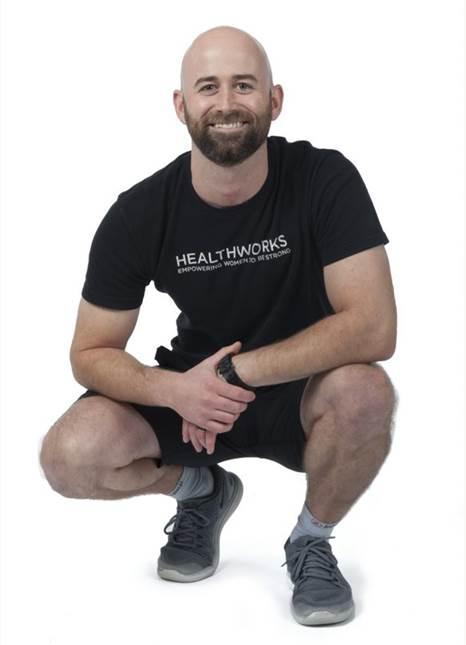
Posted on April 30, 2020
As we all know, physical activity is good for us. Something as simple as walking not only protects the heart but also helps control weight, ease joint pain, reduce the risk of certain cancers, reduce inflammation and improve sleep. It sharpens our thinking, boosts our mood and improves immune function. Very recently I heard of a further benefit of exercise, one that is critically important right now.
This new learning came from my wonderful personal trainer, Marc DesLauriers of Healthworks Fitness, who has become a trusted source of health information. Marc sent me a link to a newspaper article on exercise and ARDS, the acute respiratory distress syndrome that affects up to 17% of all COVID-19 patients, up to 42% of hospitalized COVID-19 patients and up to 85% of COVID-19 patients in intensive care. I read that an in-depth research review by Dr. Zhen Yan of the University of Virginia School of Medicine strongly supports the possibility that cardiovascular exercise can prevent ARDS or at least reduce its severity by enhancing the production of a potent antioxidant that protects body tissues and helps prevent disease. Even a single exercise session increases the production of this antioxidant. Dr. Yan urges us to exercise right now, even as we practice social distancing.
This took me back to an article I’d read last month. Richard J. Simpson, Ph D, a fellow of the highly-respected American College of Sports Medicine, wrote: “Each bout of exercise, particularly whole-body dynamic cardiorespiratory exercise, instantaneously mobilizes literally billions of immune cells, especially those cell types that are capable of carrying out effector functions such as the recognition and killing of virus-infected cells.” Exercise is also known, Dr. Simpson wrote, to counter the negative effects of isolation and confinement on immunity.
The emphasis on cardiovascular exercise intrigued me. I walk outdoors nearly every day, but what else, I wondered, counts as cardio besides walking, jogging, running and biking now that gyms, tennis and basketball courts and swimming pools are closed? I’d huffed and puffed at times during my workouts with Marc, which emphasized muscle strengthening, but was that cardio? And what cardio would I do if I couldn’t exercise outdoors because I had young children at home and didn’t have a stationary bike or treadmill?
I reached out to Marc for answers to these questions. He explained that the most immune benefit comes from sustained movement that causes breathing to become faster and deeper and the heart rate to increase. This aerobic exercise – “cardio” – is different from anaerobic exercise that involves quick bursts of energy to perform at maximum effort for a shorter time. Working in intervals of core strengthening and cardio, as in my sessions with Marc, is alternately anaerobic and aerobic, but while gaining in other areas, I may not have been achieving optimum immune benefits. To get those benefits, Marc said, it’s ideal to perform moderately intense aerobic activity for at least 30 minutes. The “talk test” can help gauge the intensity of an exercise: at a moderately intense level, you can talk but not sing, while at an intense level, you can’t say more than a few words without pausing for breath. If this is new for you, it’s best to start with less time and intensity and work up to a higher level.
Choosing a cardio activity is about personal preferences and availability. Ideally, you’d find something you enjoy. In addition to walking, running and biking, you could consider stair climbing, jumping rope, or hula hooping. If you like mixing it up, you could do rounds of these other aerobic exercises Marc suggests:
• Jumping jacks
• Star jumps (jumping up, reaching arms and legs to the sides)
• Butt kicks (jogging in place, kicking heels toward buttocks)
• Jump squats (jumping up explosively from a squat, then returning to squat)
• Burpees
• Aerobic dancing like Zumba
Healthworks Fitness currently offers a variety of virtual options you can read about on their website. And you can reach Marc at mdeslauriers@healthworksfitness.com.
Motivation is more difficult these days, even for the most dedicated. Setting an exercise schedule is a good idea as is holding yourself accountable by keeping an exercise log or sharing your plan with someone who will check on your progress. Challenge yourself to a daily goal and reward yourself each time you reach it – keeping it healthy, of course! And be sure to congratulate yourself for supporting your health by making exercise your medicine.